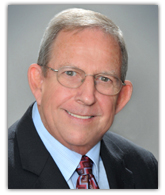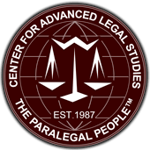...And One Possible and Practical Solution
According to a survey conducted by Reuters, “More than 40 percent of recent U.S. college graduates are underemployed or need more training to get on a career track.”
The survey also discloses that more than 25% of these graduates have already enrolled in a Master’s degree program. The perception that a master’s degree will satisfy the need for more training is valid provided the degree is skill-based; otherwise, if the degree is more philosophical in nature, the graduate might still need more training to gain a career.
Another public opinion survey that was released by Northwestern University and published in The Chronicle of Higher Education stated that “American adults and employers want colleges to produce graduates who can think critically and creatively and can communicate orally and in writing.”
Reaching for that goal without including marketable skills in the student’s degree plan could explain why graduates are underemployed and in need of more training. Evidently, just thinking and communicating, in and of itself, doesn’t pay all that well.
The need for more training
At some point, regardless of educational accomplishments, most of us still need to be taught how to do something to earn a decent paycheck. Adding training to the already acquired critical thinking and communication skills seems like a reasonable solution to the problem.
To this end, some college graduates go to law school to be an attorney; others go to medical school to be a doctor, or to dental school to be a dentist, or nursing school to be a nurse, while still others go to paralegal school to be a paralegal. These specialized schools are designed to prepare their graduates to become the professional they sought to be.
A practical solution
All the professions listed above require a license to practice, all except one—the paralegal profession. But that profession does require a practical skill-set compatible with thinking critically and creatively and communicating both orally and in writing. For years, college graduates have been attending paralegal schools to become proficient in the duties and requirements of working in the legal profession. Students are taught to convert what is learned into a finished work product—they learn practical, concrete skills. Just like in other professional schools, all students in paralegal schools are focused in the same direction and want to start their legal career with the real-world skills needed to perform and impress… and, get paid.
Attorneys and paralegals are alike
Attorneys are also thinkers and communicators. Their educational path was clear. Once out of college, they decided they needed to learn how to do something. As a general rule, they earned a high enough GPA and did well enough on the LSAT to be accepted into law school. After spending three years there, it was on to the bar review to prepare for the bar exam. Finally, pass the bar, get sworn in, you are an attorney. It was recently reported that, on the average, an attorney completes law school today with $116,000.00 in student loan debt.
Since paralegals are expected to do everything an attorney can do, they must perform at a comparable level. Unauthorized Practice of Law rules limit certain duties of the paralegal, but all in all, paralegals are charged with a pretty challenging task that requires proper preparation. No attorney is willing to put their law license at risk due to sloppy work of their paralegal.
But, unlike becoming an attorney, there is no educational authority governing paralegal training. The path to becoming a paralegal is can be confusing at first. Those thinking and communicating skills developed in college can be called upon to help determine the path best suited for you.
The truth about short-term paralegal programs
So called “short-term” paralegal programs last for just a few weeks and are often misconstrued as being part of a respected college’s program offerings. The host college usually has nothing to do with the short-term paralegal program except lease out empty classroom space to non-affiliated contractors and then issue a certificate upon completion. How could anyone have suspected that? Many professional paralegal associations publish policy statements on such programs. Look at the American Association of Paralegal Educators (AAfPE) and the National Association of Paralegal Associations (NFPA) for disclosure statements on such programs.
You could back track
Many college graduates started out at their local community college before going on and earning their bachelor’s degree. Community colleges have gotten into the fray of offering paralegal programs along with other colleges that offer full-blown Master’s degree programs. College graduates are hesitant to retrace their roots and return to the community college while others are hesitant to move forward to pursue a Master’s that may not be skill-based enough to satisfy their need for more training. What’s a college graduate to do?
Or, you could specialize
As Co-Founder and President of Center for Advanced Legal Studies (CALS), I understandably have a bias towards our paralegal programs. We have been specializing solely in paralegal education since before the fall of the Berlin wall. It’s all we do. We expect our students to be diligent and to perform at a high level while attending class, and in turn, employers can expect a well-prepared legal professional when they hire our graduates.
We have over 5,000 graduates in our local area who have chosen CALS to be their pathway to enter the paralegal profession. Through the latest online delivery options, we have expanded our reach and offer the same high-quality paralegal programs throughout the land. We also offer career services to our students and graduates, and our job placement rates are outstanding—we have more employers requesting for our graduates than we have graduates to fill the paralegal positions! For college graduates, the focused and practical approach of CALS is a perfect fit and a great option to consider.
Our students realize the need for more training to get on a career track, and are learning their hands-on skill-set at one of the most prestigious paralegal schools in the country, all the while incurring just a small fraction of the debt of law school and/or other professional training endeavors. Don’t take my word for it; find out for yourself why so many have chosen Center for Advanced Legal Studies to begin their paralegal career.
 As you can tell, our Co-Founder and President, Mr. Doyle Happe, is quite passionate about the paralegal training and career services offered at Center for Advanced Legal Studies. Are you interested in learning a concrete skill-set to get you started toward an actual career? Contact us as info@paralegal.edu or 1.800.446.6931. We are committed to the success of our students!
As you can tell, our Co-Founder and President, Mr. Doyle Happe, is quite passionate about the paralegal training and career services offered at Center for Advanced Legal Studies. Are you interested in learning a concrete skill-set to get you started toward an actual career? Contact us as info@paralegal.edu or 1.800.446.6931. We are committed to the success of our students!












